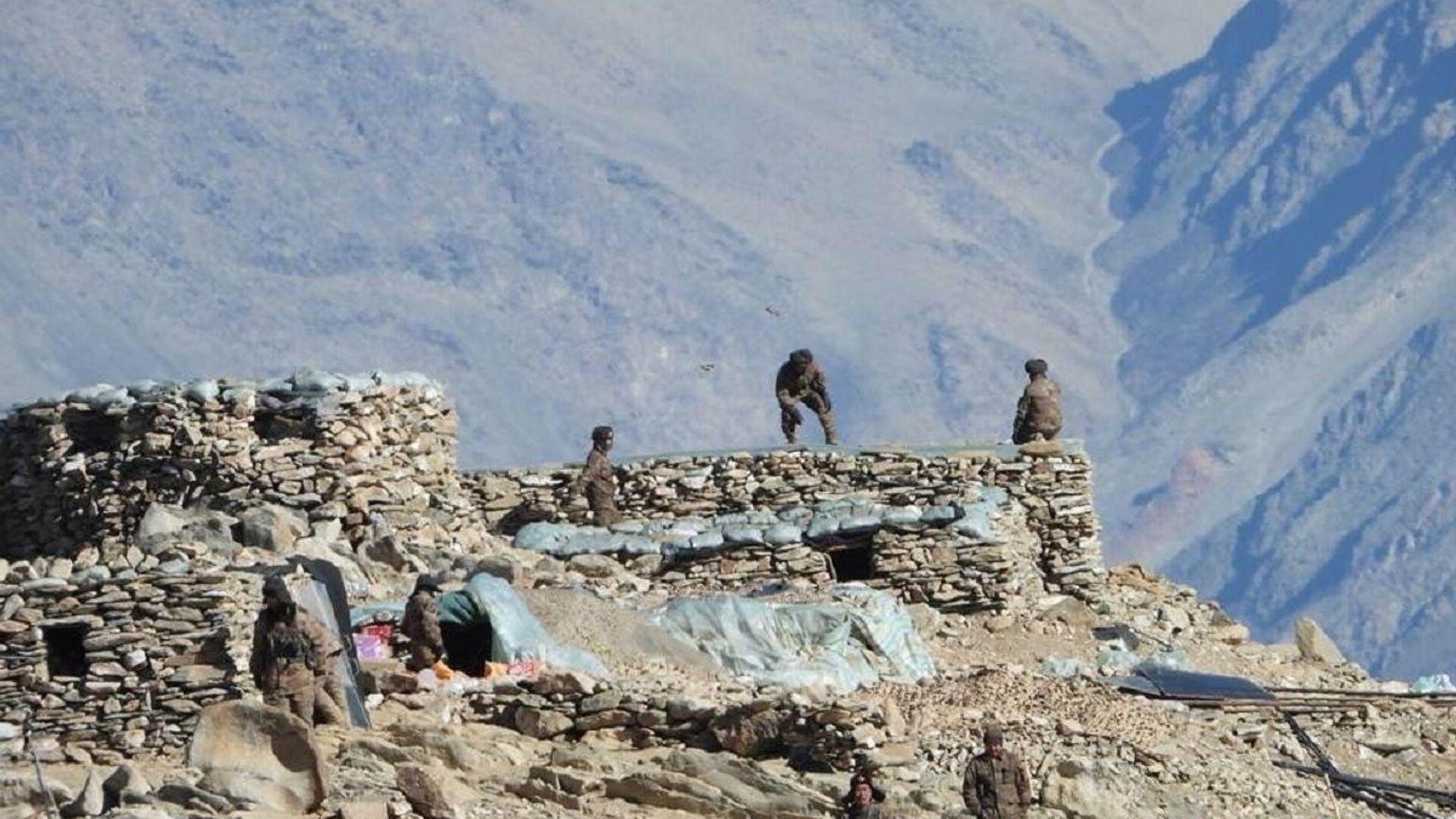https://sputnikglobe.com/20211027/india-warns-beijing-against-altering-status-quo-at-lac-under-pretext-of-new-border-law-1090245989.html
India Warns Beijing Against Altering Status Quo at LAC Under Pretext of New Border Law
India Warns Beijing Against Altering Status Quo at LAC Under Pretext of New Border Law
Sputnik International
On 23 October, the Standing Committee of the National People’s Congress, China’s top legislative body, adopted a new law aiming for the “protection and... 27.10.2021, Sputnik International
2021-10-27T13:21+0000
2021-10-27T13:21+0000
2022-07-19T10:40+0000
pla
ladakh standoff
china
indian army
border tensions
people's liberation army (pla) navy
https://cdn1.img.sputnikglobe.com/img/07e5/07/0c/1083369032_0:113:1200:788_1920x0_80_0_0_ef3bf57f0eedbdbb2780852f545891c9.jpg
The Indian government has expressed concern over China’s new land boundary law that could affect ongoing border tensions between the two countries, calling the legislation a “unilateral move”. The law states that China abides by treaties concluded with or jointly acceded to by foreign countries on land boundary affairs. It also has provisions to reorganise districts in the border areas.Bagchi further hopes that China’s “unilateral move” will have no bearing on the bilateral arrangements on boundary issues that both sides have already reached in the past. The two countries have concluded several bilateral agreements, protocols, and arrangements to maintain peace and tranquillity along the LAC in India-China border areas.China passed the law while the two countries were engaged in easing the 17-month-long tensions along the loosely demarcated Line of Actual Control (LAC). The latest meeting, held at the beginning of October, ended without any progress, as both sides accused each other of seeking "unreasonable" favours on border issues.The Indian Army and China’s People Liberation Army have reportedly deployed over 50,000 additional troops and sophisticated weapons in the western sector of the LAC due to the ongoing border stand-off. The tensions erupted in spring last year over border infrastructure in the Ladakh region. According to Xinhua news agency, the new land law asks the state to “take measures to safeguard territorial integrity and land boundaries and guard against and combat any act that undermines [these]”. The state can take measures “to strengthen border defence, support economic and social development as well as opening-up in border areas, improve public services and infrastructure in such areas, encourage and support people’s life and work there, and promote coordination between border defence and social, economic development in border areas”, it has reported.
https://sputnikglobe.com/20211026/chinas-new-border-law-mandates-pla-to-build-dual-use-infrastructure-on-its-borders-expert-says-1090195265.html
ladakh standoff
china
Sputnik International
feedback@sputniknews.com
+74956456601
MIA „Rossiya Segodnya“
2021
Rishikesh Kumar
https://cdn1.img.sputnikglobe.com/img/07e4/08/04/1080055820_0:0:388:389_100x100_80_0_0_40018ee210946d65d49ffba4f4c008e1.jpg
Rishikesh Kumar
https://cdn1.img.sputnikglobe.com/img/07e4/08/04/1080055820_0:0:388:389_100x100_80_0_0_40018ee210946d65d49ffba4f4c008e1.jpg
News
en_EN
Sputnik International
feedback@sputniknews.com
+74956456601
MIA „Rossiya Segodnya“
Sputnik International
feedback@sputniknews.com
+74956456601
MIA „Rossiya Segodnya“
Rishikesh Kumar
https://cdn1.img.sputnikglobe.com/img/07e4/08/04/1080055820_0:0:388:389_100x100_80_0_0_40018ee210946d65d49ffba4f4c008e1.jpg
pla, ladakh standoff, china, indian army, border tensions, people's liberation army (pla) navy
pla, ladakh standoff, china, indian army, border tensions, people's liberation army (pla) navy
India Warns Beijing Against Altering Status Quo at LAC Under Pretext of New Border Law
13:21 GMT 27.10.2021 (Updated: 10:40 GMT 19.07.2022) On 23 October, the Standing Committee of the National People’s Congress, China’s top legislative body, adopted a new law aiming for the “protection and exploitation of the country’s land border areas”. The new border law will come into effect from 1 January, state media Xinhua reported.
The Indian government has expressed concern over China’s new land boundary law that could affect ongoing border tensions between the two countries, calling the legislation a “unilateral move”.
The law states that China abides by treaties concluded with or jointly acceded to by foreign countries on land boundary affairs. It also has provisions to reorganise districts in the border areas.
“We expect that China will avoid undertaking action under the pretext of this law which could unilaterally alter the situation in the India-China border areas".
Arindam Bagchi
Spokesperson, India's Ministry of External Affairs
Bagchi further hopes that China’s “unilateral move” will have no bearing on the bilateral arrangements on boundary issues that both sides have already reached in the past.
The two countries have concluded several bilateral agreements, protocols, and arrangements to maintain peace and tranquillity along the LAC in India-China border areas.

26 October 2021, 12:17 GMT
“It may be noted that India and China have still not resolved the boundary question. Both sides have agreed to seek a fair, reasonable and mutually acceptable resolution to the Boundary Question through consultations on an equal footing”, Bagchi added.
China passed the law while the two countries were engaged in easing the 17-month-long tensions along the loosely demarcated Line of Actual Control (LAC). The latest meeting, held at the beginning of October, ended without any progress, as both sides accused each other of seeking
"unreasonable" favours on border issues.The Indian Army and China’s People Liberation Army have reportedly deployed
over 50,000 additional troops and sophisticated weapons in the western sector of the LAC due to the ongoing border stand-off. The tensions erupted in spring last year over border infrastructure in the Ladakh region.
According to Xinhua news agency, the new land law asks the state to “take measures to safeguard territorial integrity and land boundaries and guard against and combat any act that undermines [these]”.
The state can take measures “to strengthen border defence, support economic and social development as well as opening-up in border areas, improve public services and infrastructure in such areas, encourage and support people’s life and work there, and promote coordination between border defence and social, economic development in border areas”, it has reported.



